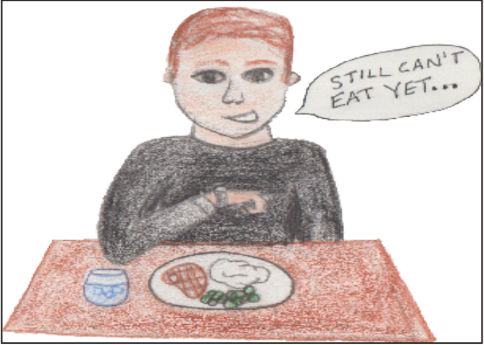East students and staff try intermittent fasting

Many East students and staff try intermittent fasting.
Intermittent fasting is the new diet trend that is taking students and celebrities alike by storm. The health effects are said to be amazing.
As a matter of fact, for the last two decades, extensive research on the diet has been conducted on both animals and humans. The New England Journal of Medicine discovered that intermittent fasting can reduce inflammation, lower the risk for cancer and even elongate lifespans.
So what is unique about intermittent fasting? It is a diet pattern which contains a restricted feeding period of 6-10 hours. There are also more extreme ver- sions that include eating for 5 days and fasting for 2. The most popular version of the diet is an 8-hour eat- ing window and a 16-hour fasting period. Within the eating window, the dieter can fit 2 or 3 meals in to get their normal amount calories.
At East, students and staff are reaping multiple benefits from intermittent fasting. After learning about the diet from a friend, East’s activities director, Mr. Charles Davis, started practicing intermittent fasting in the summer of 2019. He said that his energy has increased since then and he wants to continue with the diet.
“I have a lot more energy in the morning without having anything in me,” Davis said.
This is perhaps due to the suppressed hormone ghrelin, which makes people feel hungry. Studies found that this hormone lowers during the fasting period, leading to less feelings of hunger while burning more fat and reducing one’s risk for diabetes.
For beginners, Davis advises students to hydrate by drinking lots of water. Drinking non-sugary beverages and coffee can also help to relieve hunger.
Sarah Zheng (‘20) tried out the diet from February to March in 2019, before junior prom. She discovered intermittent fasting from a Youtube video and ate her meals in a window of 9 hours and fasted for 15. Although the beginning was very difficult, she soon got used to the eating pattern.
“The first week I was so hungry… but soon it became part of my daily routine,” she said.
Along with losing weight, she also felt more energetic.
“Build a diet around your own schedule,” Zheng advised. “If you eat lunch at school at 10:30 am, make that part of your eating window.”
However, in this age where body dysmorphia is common and a skinny body is encouraged by society, can this diet actually be harmful to individuals struggling with body image?
The answer is yes and no. Mrs. Andrea Berez, a dietitian and nutritionist, recommends people looking into the diet should be able to eat normally. Because of the fasting constraint, Berez says that people could possibly not eat enough calories, which could then lead to unhealthy eating habits, including binging and eating disorders.
Along with that, if the dieter has any preexisting health conditions, they should consult a doctor.
“Students should not try this diet before seeking professional advice,” said Berez.
For East student Morgan Young (‘21), her first experience with intermittent fasting was eventful. Hoping to gain more energy while also losing weight, Young decided to try the diet herself after watching a Youtube video on intermittent fasting.
Her first day on the diet, she started feeling dizzy in English class.
“I hadn’t eaten anything that night or in the morning and I felt really tired,” explained Young. “So at one point I laid down in the [beds in the nurse’s office] and knocked out.”
She also has anemia, a health condition that is accompanied by symptoms of fatigue. Young contributes her fainting to skipping breakfast to reach the 16 hour fasting mark. After reviving, her blood pressure was found to be lower than usual.
“I took a step back after that,” reflected Young, “and now I’ve been fasting for 10-12 hours.”
So far, she has lost five pounds but plans to lose more to reach her target weight.
“I might want to continue [intermittent fasting],” explained Young, “but I’m scared that if I stop it, I might gain the weight back.”
While multiple East students are trying out the diet, there is minimal research measuring the effects of intermittent fasting on adolescents.
“Right now, there isn’t a lot of research on how it affects teens,” warns Berez, “We don’t know if their brains are affected because they are still growing.”
Although intermittent fasting may be trending online and in school, don’t rush into it before you are sure it is for you.
But if you want to intermittent fast, here’s the deal: snack minimally, create some long fasting periods and eat enough. This way, you can profit from the benefits even without strictly implementing intermittent fasting in your lifestyle.

